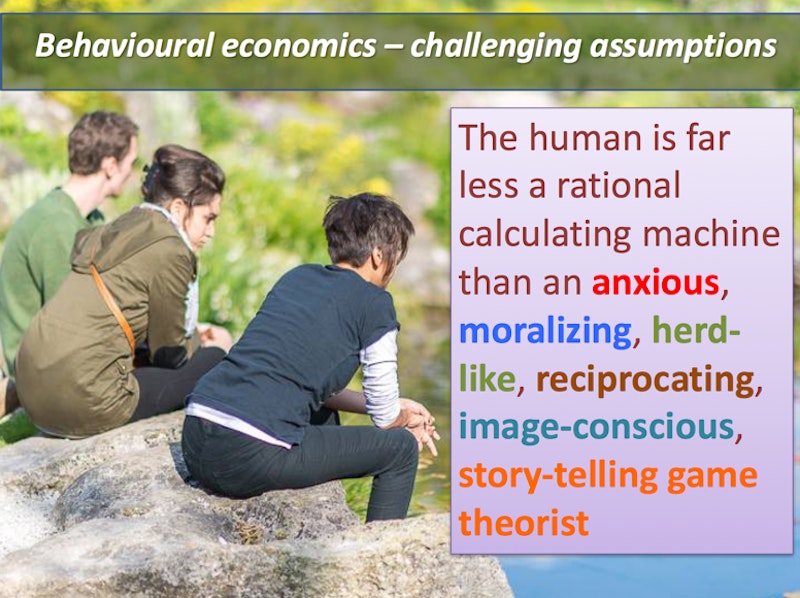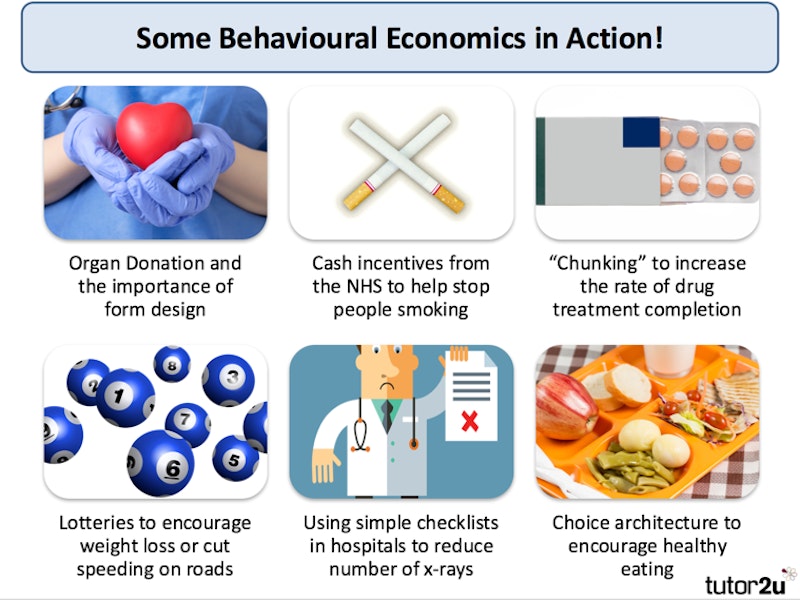Study Notes
Evaluating Behavioural Nudges (Behavioural Economics)
- Level:
- AS, A-Level
- Board:
- AQA, Edexcel, OCR, IB
Last updated 21 Mar 2021
Are behavioural nudges effective in achieving aims of public policy?
Behavioural nudges are an alternative to using taxes and subsidies to influence choices and many have been or are being applied in public policy-making both in the UK and in a growing number of countries. How effective are behavioural nudges in prompting desired changes of behaviour to meet economic, social and environmental targets and aims? Development policy-makers want people to use anti-malarial bed nets, drink clean water, and send their children to school - but which interventions might have most impact in addressing these challenges?

Some recent examples of behavioural nudges / behavioural policy in action!

Some more examples

Critical Evaluation: Are Behavioural Nudges Effective?
- Behavioural economics may encourage government to become too paternalistic in their policies attempting to nudge behaviour
- Behavioural economics focuses too heavily on people’s vulnerability to fall for fallacies and their psychological biases – it can give the impression that consumers are dumb
- In fact consumers using well-practiced rules of thumb might be operating in a rational way
- There are clear limits to the application of nudge theory – it may be useful in changing minor behaviours in a modest way but not in changing deep rooted psychological problems such as alcoholism, drug dependency and street violence
- Conventional policy interventions such as taxes, subsidies and regulations are often just as effective as nudges because price remains an important determinant of choices in markets
You might also like

Cass Sunstein on Ten Common Behavioural Nudges
19th October 2014

Can Nanny make you stop drinking?
8th October 2014

How useful is economics? Nobel winner Al Roth
24th August 2014
The Economics of the Blockbuster
13th August 2014

Paul Craven: The Magic of Behavioural Economics
24th June 2014
A fine nudge? Singapore MRT vs London Tube
24th April 2014

Rising Residential Segregation, but Less Racial Prejudice: How Can This Be?
28th November 2013
Irrational Exuberance and Twitter shares
20th October 2013